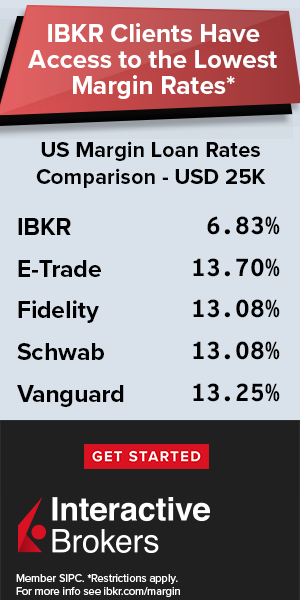Slip and fall accidents can happen to anyone, often resulting in unexpected injuries and financial burdens. These incidents frequently occur in public places like stores, restaurants, or workplaces, leaving victims uncertain about their rights or the next steps to take. Understanding your legal options can make a significant difference in recovering damages and holding the responsible parties accountable.

Slip and fall attorneys have extensive experience in personal injury law, particularly cases where a property owner’s negligence leads to dangerous conditions.
These attorneys help victims navigate complex legal processes, negotiate with insurance companies, and represent their interests in court when necessary. If you’ve experienced a slip and fall, knowing when to seek legal help from a Slip and Fall lawyer who understands the intricacies of these cases can protect your rights and maximize your compensation.
Example Slip and Fall Scenarios
Slip and fall accidents arise in various situations, often due to unsafe conditions. Here are some common examples of scenarios that may lead to such accidents:
- Uneven Surfaces: Tripping over poorly maintained sidewalks, cracked pavement, or uneven flooring in stores and public spaces.
- Obstructed Pathways: Falling due to clutter, cords, or debris left in walkways.
- Stairway Hazards: Missing handrails, broken steps, or poorly lit staircases that create unsafe conditions.
- Workplace Accidents: Slips or trips in offices, warehouses, or construction sites due to hazards like spilled liquids, misplaced tools, or faulty equipment.
Each of these scenarios shows the importance of property owners maintaining safe environments to prevent injuries. When they fail to do so, victims may have a valid claim for compensation.
Who is to Blame After a Fall in a Store?
Who’s to blame or “at fault” will depend on several factors, including:
- The State Where You Fell: Laws governing slip and fall liability vary by state. Some states follow comparative negligence rules, meaning the victim’s own actions may affect their ability to recover damages. Others operate under strict premises liability, holding property owners accountable for hazardous conditions.
- The Location of the Fall: The specific area where the fall occurred can influence liability. For example, falling inside a store due to spilled liquids might hold the store accountable, while a fall outside in the parking lot might involve a different party, such as a property management company.
- If You Did Anything to Prevent the Fall: Courts may assess whether you took reasonable care to avoid the hazard. For instance, if a warning sign was posted but ignored, this could reduce the store’s liability.
- If You Did Anything to Cause the Fall: Contributory negligence, such as wearing inappropriate footwear or being distracted, can also influence fault. Some states reduce damages proportionally based on the victim’s degree of responsibility.
- On-the-Job Falls: Falls while working may involve workers’ compensation claims, which differ from personal injury cases. However, if a third party’s negligence caused the fall, you may be able to file a separate lawsuit.
- Other Factors: Evidence like surveillance footage, witness testimonies, and maintenance records can further clarify fault. Consulting a legal professional can help you navigate these factors to establish liability.
Important Steps to Take After a Slip or Fall
If you experience a slip and fall accident, taking prompt action is crucial to building a strong case. Here are the steps to follow:
Seek Medical Attention
Your health should always come first. Visit a doctor immediately, even if your injuries seem minor, as some conditions may worsen over time.
Report the Incident
Notify the property owner, store manager, or supervisor about the accident. Get a copy of the incident report and retain it for your records.
Document the Scene
Take photos or videos of the area where the fall occurred, including hazards like broken steps or inadequate lighting. Capture timestamps and any warning signs (or lack thereof).
Gather Witness Information
If anyone witnessed the fall, ask for their contact information and statements. Their accounts can support your case.
Preserve Evidence
Keep the clothes and shoes you were wearing during the fall, as these can provide valuable evidence. Additionally, maintain medical records, receipts, and other documentation related to the incident.
Avoid Giving Statements
Refrain from making statements to insurance adjusters or property owners without consulting an attorney. Any statements you make could adversely affect your claim.
Contact a Slip and Fall Attorney
A lawyer can guide you through the legal process, gather evidence, and negotiate on your behalf to secure fair compensation.
What If a Business Owner Denies Responsibility for the Slip or Fall?
Business owners often deny liability for slip and fall accidents to avoid paying damages. If this happens, don’t be discouraged – you still have options.
If a business owner denies responsibility for a slip and fall accident, it can be frustrating, but there are still ways to pursue justice. Most states have premises liability laws that require property owners to maintain safe conditions. When they fail to do so and injuries result, they can be held accountable, regardless of whether they deny responsibility. To strengthen your case, it’s important to gather as much evidence as possible. This can include photos, witness statements, and maintenance records, which can help establish that the business owner was negligent.
When Should You Hire a Slip and Fall Lawyer?
Deciding to hire a slip and fall attorney depends on the circumstances of your case.
Legal representation may be necessary in situations where you’ve sustained severe injuries that lead to significant medical expenses, long-term disabilities, or lost wages. An attorney can help ensure you receive fair compensation for these damages. If liability for the accident is disputed, such as when the property owner denies responsibility or blames you, a lawyer can investigate the incident and strengthen your claim with evidence.
Additionally, cases involving multiple parties, like landlords, contractors, or maintenance companies, can be complex and will likely require professional legal assistance to maneuver through effectively. If you face uncooperative insurance companies offering low settlements or refusing to pay, an attorney can negotiate on your behalf and even litigate in court if necessary. A lawyer’s experience allows you to focus on healing while they manage the complexities of your case.
Contact an Attorney Sooner Than Later!
If you’ve found yourself searching for a “consumer attorney near me,” or anything similar online, it’s time to consider hiring a slip and fall attorney now – early in the process because doing so can significantly improve your chances of securing a favorable outcome.
A skilled lawyer can guide you through every step in the litigation process, from gathering evidence to negotiating settlements, and ensuring your rights are protected.


 Hot Features
Hot Features













